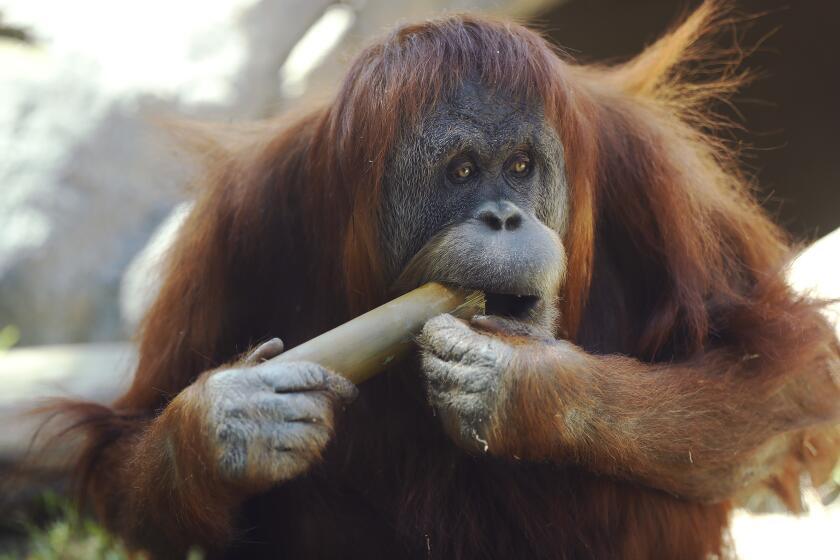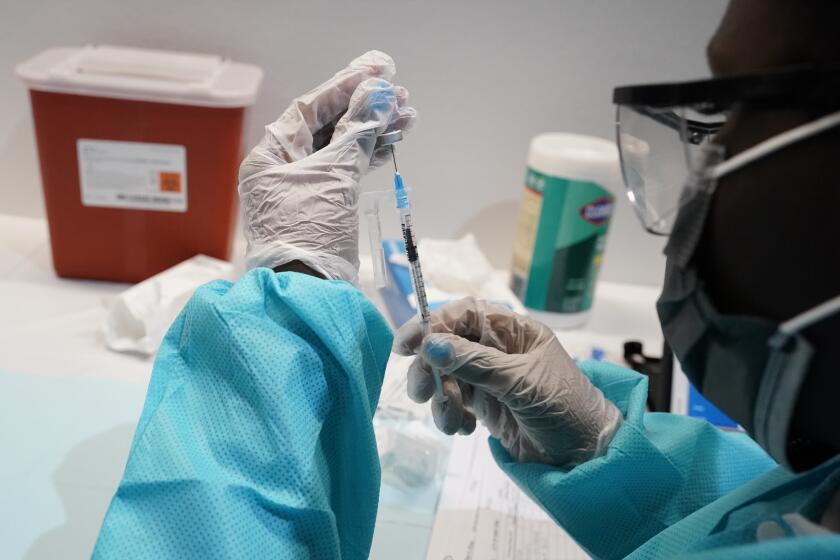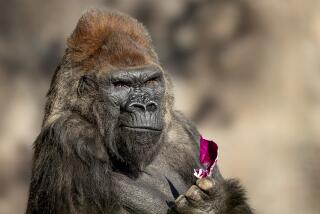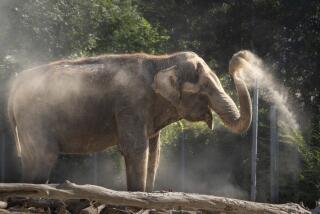Ramil the snow leopard tests positive for the coronavirus at the San Diego Zoo
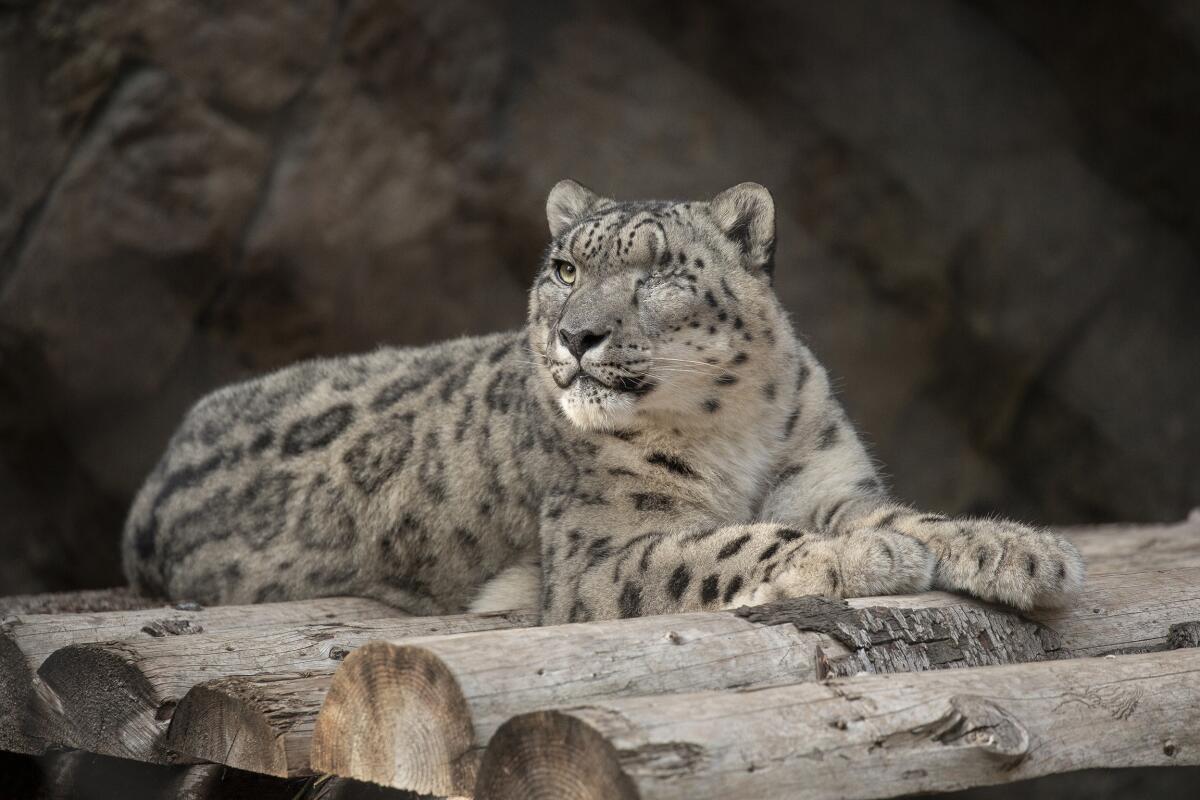
Zoo staff say the catâs symptoms are mild and are still investigating how he got infected
SAN DIEGO â Ramil, a 9-year-old male snow leopard at the San Diego Zoo, has tested positive for the coronavirus, the zoo said Friday.
Zoo staff first tested the animalâs stool for the virus after noticing Thursday that he had a cough and runny nose. When that test came back positive, the wildlife care team sent samples to the California Animal Health and Food Safety Laboratory System so that the state-level lab could confirm the result, which it did.
And while the zoo is still waiting for a U.S. Department of Agriculture lab to triple-check the finding, it expects that sample to also come back positive, according to a spokesperson.
In a statement, the zoo said that keepers are monitoring Ramil and that his symptoms havenât progressed. Because he shares an enclosure with a female snow leopard and two Amur leopards, staff are assuming the other three big cats have been exposed and are quarantining all of them, meaning the exhibit will be closed to the public.
âWe can assure you the snow leopard and the Amur leopards who share his habitat are receiving excellent care,â Dwight Scott, the zooâs executive director, said in a statement.
The zoo says itâs unclear how the snow leopard was exposed to the virus, noting that keepers have to follow strict safety protocols and that all employees are offered N95 masks, with face coverings mandatory for anyone whoâs not vaccinated. Despite these protocols, the Safari Park reported in mid-January that its troop of eight gorillas tested positive for the coronavirus, probably after contact with a keeper who had the virus but showed no symptoms.
Itâs the first known case of non-human apes becoming infected with the novel coronavirus
The gorilla troop, which has since recovered, became the first known example of the virus infecting apes. But researchers have long known that cats can get COVID-19. In April 2020, a tiger at the Bronx Zoo became the first case of an animal testing positive for the coronavirus. Since then, researchers have on occasion spotted infections in lions and domestic cats, according to the federal Centers for Disease Control and Prevention.
Most cases have been mild, but thereâs little margin for error when it comes to endangered species. There are only about 4,000 to 6,500 snow leopards left in the wild, according to the World Wildlife Federation, and just 90 Amur leopards.
Earlier this year, the zoo received a batch of an experimental vaccine from Zoetis, an animal health company once part of Pfizer. Staff administered shots to several of the zooâs orangutans and bonobos, and are giving doses to other species at risk of contracting COVID-19, including several primates and felines. But the snow leopard had not been vaccinated before his infection.
Itâs the first time apes have been immunized against the coronavirus
The news comes at a time when the Delta variant of the coronavirus is spreading widely throughout the region. San Diego County officials reported 1,264 new cases Friday, the highest level since Feb. 5. At least 75% of new infections in California are suspected to be caused by this strain, based on recent sequencing data.
A zoo spokesperson said the facility doesnât yet know if Ramil was infected with the Delta variant. For the moment, the zoo has no plans to change its existing safety protocols and will continue to recommend that unvaccinated guests wear masks without reinstating a mandate.
Surge is driven mostly by Delta variant in unvaccinated people, county says
More to Read
Sign up for Essential California
The most important California stories and recommendations in your inbox every morning.
You may occasionally receive promotional content from the Los Angeles Times.
